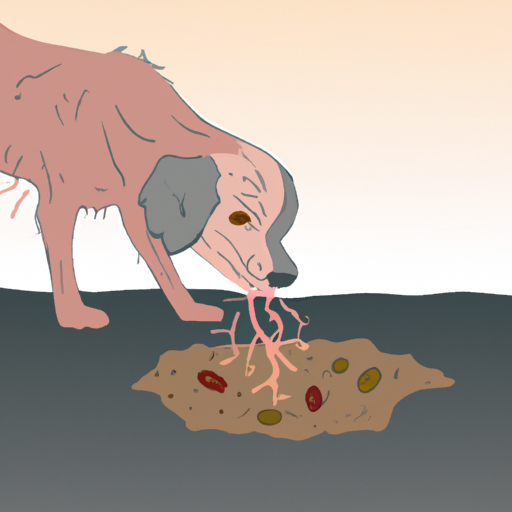If you’re a dog caregiver, understanding your pet’s health can sometimes feel like navigating a labyrinth. One common concern that may arise is a condition known as coccidiosis, which is caused by tiny, single-celled parasites known as coccidia.
Understanding Coccidia
Coccidia are intestinal parasites that can affect a wide variety of animals, including dogs. These minuscule invaders can cause an infection in your furry friend’s intestinal tract, an illness known as coccidiosis.
The coccidia species that infect dogs are called Isospora. These parasites are microscopic and cannot be seen with the naked eye. They reproduce in the intestinal tract and shed oocysts – the infectious stage of the parasite – in the dog’s feces.
How Dogs Contract Coccidia
- Direct Contact with Infected Feces
Dogs can contract coccidia by ingesting the oocysts present in the feces of an infected dog. - Indirect Contact
Oocysts can survive in the environment for some time and can be picked up by dogs from contaminated surfaces. - Ingestion of Intermediate Hosts
Dogs may also get infected by eating an animal (like a mouse) that has ingested oocysts.
The Impact of Coccidia on Dog’s Health
Coccidia infection can lead to coccidiosis, which causes symptoms such as diarrhea, loss of appetite, vomiting, and weight loss. In severe cases, it can be fatal, especially in puppies with weak immune systems.
| Symptom | Severity | Duration |
|---|---|---|
| Diarrhea | Mild to Severe | Few Days to Weeks |
| Loss of Appetite | Mild to Moderate | Varies |
| Vomiting | Mild to Severe | Varies |
| Weight Loss | Moderate to Severe | Long Term |
Preventing and Treating Coccidia Infection
Preventing coccidia infection involves maintaining a clean environment, especially in areas where your dog defecates.
Treatment usually involves the use of medications prescribed by a vet. It’s important to remember that treatment does not kill the parasites, but instead inhibits them from reproducing, giving the dog’s immune system a chance to overcome the infection.
FAQ Section
Q: Can humans get coccidia from dogs?
A: It’s extremely rare as the species of coccidia that infect dogs do not typically infect humans.
Q: Can coccidia be prevented?
A: Yes, keeping your environment clean and preventing your dog from eating feces can help prevent infection.
Q: How long does it take for a dog to show symptoms after being infected?
A: It typically takes 13 days post-infection for symptoms to appear.
Q: Is there a vaccine for coccidia?
A: Currently, there isn’t a vaccine available to prevent coccidia.
Q: Can coccidia be fatal?
A: Yes, if left untreated, especially in puppies with weak immune systems, it can be fatal.
As a caregiver, it’s crucial to understand the health issues that could impact your furry friends. With knowledge, you can ensure they live a happy, healthy life.



